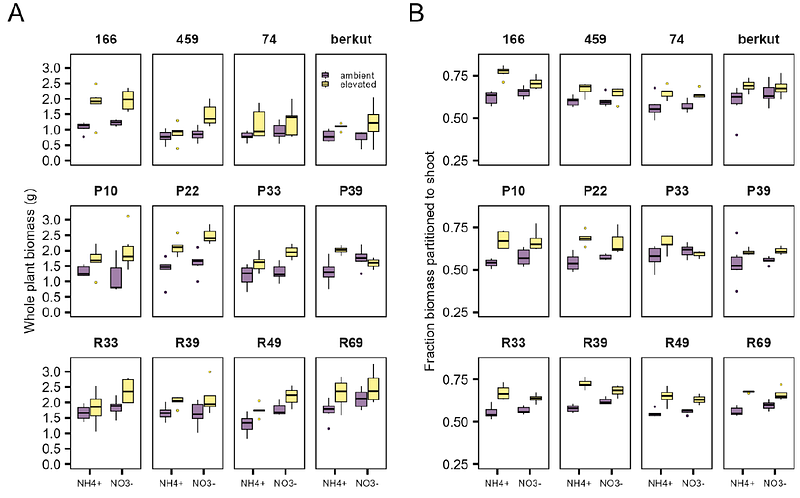Genetic adaptation to ammonium sustains wheat grain quality and alleviates acclimation to CO2 enrichment

Genetic adaptation to ammonium sustains wheat grain quality and alleviates acclimation to CO2 enrichment
Kasemsap, P.; Bloom, A. J.
AbstractPlants synthesize protein through assimilating inorganic nitrogen. Yet, the extent to which soil nitrogen sources alter crop responses to atmospheric CO2 remains uncertain. We assessed wheat (Triticum aestivum L.) biomass under CO2 enrichment in genotypes that demonstrated a preference for ammonium (NH4+) or nitrate (NO3-), and contrasting degrees of NH4+ tolerance. Nitrogen-form preference, but not NH4+ tolerance, correlated with CO2 responses. Notably, NH4+-preferring genotypes maintained higher biomass and sustained grain nitrogen concentrations, thus avoiding CO2 acclimation, the decline in biomass stimulation after prolonged exposure to CO2 enrichment. Furthermore, NH4+ nutrition accelerated flowering and increased spike biomass. Breeding for NH4+-adapted genotypes may not only improve climate resilience, but also potentially accelerate development and increase yield without any penalty on grain quality. Because wheat provides 20% of the protein and carbohydrate in the human diet, our study provided strategies to sustain food security under the atmospheric conditions anticipated in the future.